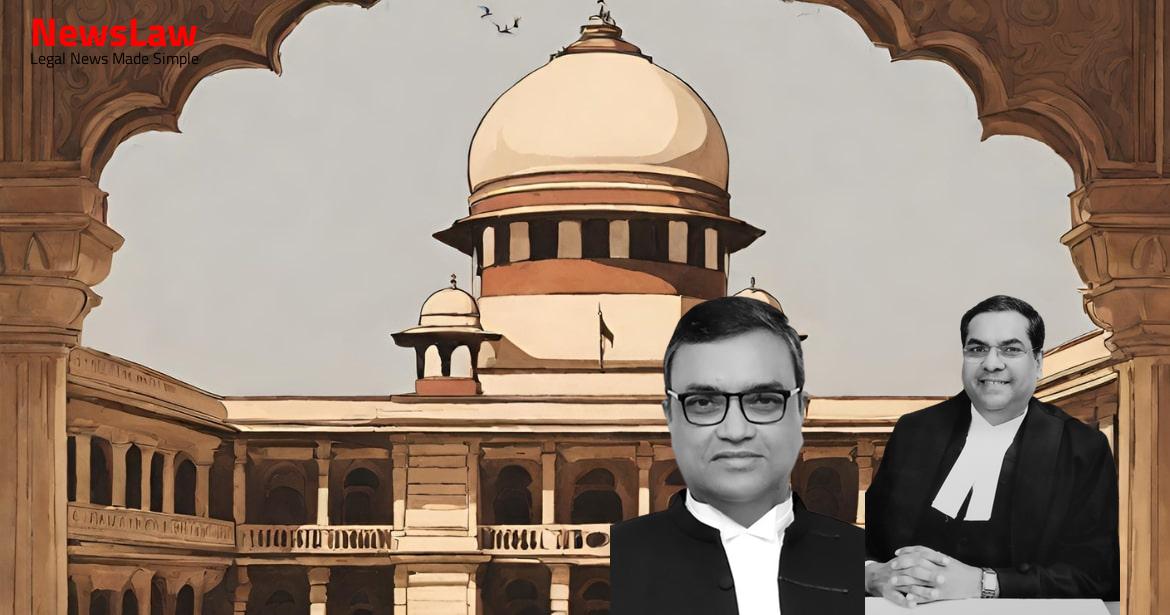In a significant legal battle between Bhushan Steel and Arcadia, the Supreme Court of India recently issued a judgment addressing territorial jurisdiction and liability concerns. The case delves into the complex interplay of transactions involving the respondents and petitioners, shedding light on pivotal legal aspects. Let’s delve into the details of this crucial ruling to understand the implications for all parties involved.
Facts
- Defendant No. 3 contends lack of territorial jurisdiction to entertain the suit.
- Defendants were jointly and severally liable.
- Bank of Ethiopia refused to encash the Letter of Credit due to discrepancies.
- Arcadia released goods to TYO Trading with a Bill of Lading endorsed by Bank of Ethiopia.
- Original documents, including Bills of Lading, were with Bhushan Steel.
- Defendant No. 2’s liability remains as the payment was not released despite fulfilment of conditions.
- Defendant No. 3’s liability arises if goods were delivered without endorsement from Defendant No. 2.
- Defendant No. 3 must prove hold of original Bill of Lading duly endorsed by Defendant No. 2 to escape liability.
- High Court at Delhi’s jurisdiction was challenged.
- No cause of action against Defendant No. 3 within the jurisdiction of the court.
- Arcadia failed to disclose actual recipient in Ethiopia.
- Territorial jurisdiction questioned as conflicting statements by Arcadia regarding the recipient of the goods.
- Payment not received by Bhushan Steel, Bank of Ethiopia refused to honor Letter of Credit.
- Defendants took contradictory stands on the issue.
- Original documents with Bills of Lading were returned unpaid by Punjab National Bank to Bhushan Steel.
- Goods released by Arcadia without endorsed original Bill of Lading, leading to liability.
- Goods shipped late led to refusal by Bank of Ethiopia to honor the Letter of Credit.
- Defendant No. 3 released goods unauthorizedly, not accounted for.
- Freight charges prepaid by Bhushan Steel to Arcadia.
- The Single Judge of the High Court at Delhi found Arcadia liable for the loss suffered by Bhushan Steel.
- Arcadia is required to pay Bhushan Steel the value of the goods.
- No interest is to be charged on the payment.
Also Read: Madhya Pradesh Jan Vikash Party v. Election Commission of India: Upholding the Use of EVMs
Analysis
- The court emphasized that involvement of Arcadia was restricted to the second transaction only.
- Territorial jurisdiction should be determined at the outset and not deferred till the end.
- The Bill of Lading linked the shipment of goods to the sale by Bhushan Steel.
- Arcadia’s argument regarding jurisdiction was deemed to be without merit.
- The actions of Arcadia and the transactions were interconnected.
- The cause of action required all defendants to be parties, and the court lacked jurisdiction over the third defendant.
- The appeal by Arcadia against the Division Bench’s judgment was based on jurisdiction.
- The Bill of Lading was crucial for goods release and involved TYO Trading and Bank of Ethiopia.
- Bhushan Steel was within its rights to include all defendants in a single suit per Order I Rule 7.
- Separate suits can be combined if common questions of law and fact arise.
- Two distinct transactions occurred: sale of goods and shipment from Mumbai to Djibouti.
- Provisions in Order I Rule 7 allowed joining multiple defendants to determine liability in one suit.
- The cause of action determines territorial jurisdiction, which in this case included Delhi.
- The transactions were interconnected and could not be separated into distinct parts.
- The Division Bench correctly set aside the Single Judge’s finding on territorial jurisdiction.
- A portion of the cause of action arose in Delhi due to supply order placement and payment release location.
- In the dispute, the defendants took different stands.
- As a remedy, a civil suit was filed against the defendants.
- The civil suit was maintainable in Delhi due to part of the cause of action arising there.
Decision
- The Single Judge made an error in accepting Arcadia’s argument about lack of territorial jurisdiction of the Delhi High Court and absence of cause of action in Delhi due to their businesses being in Mumbai.
- The Court found that liability could still be imposed on Arcadia despite this.
- Any pending applications will be dealt with accordingly.
- Based on the above reasons, the civil appeal in question has been dismissed.
Also Read: SECI vs. Wind Four Renergy Pvt. Ltd.: Legal Battle Over Green Energy Project
Case Title: ARCADIA SHIPPING LTD. Vs. TATA STEEL LIMITED (2024 INSC 333)
Case Number: SLP(C) No.-008488 / 2024



